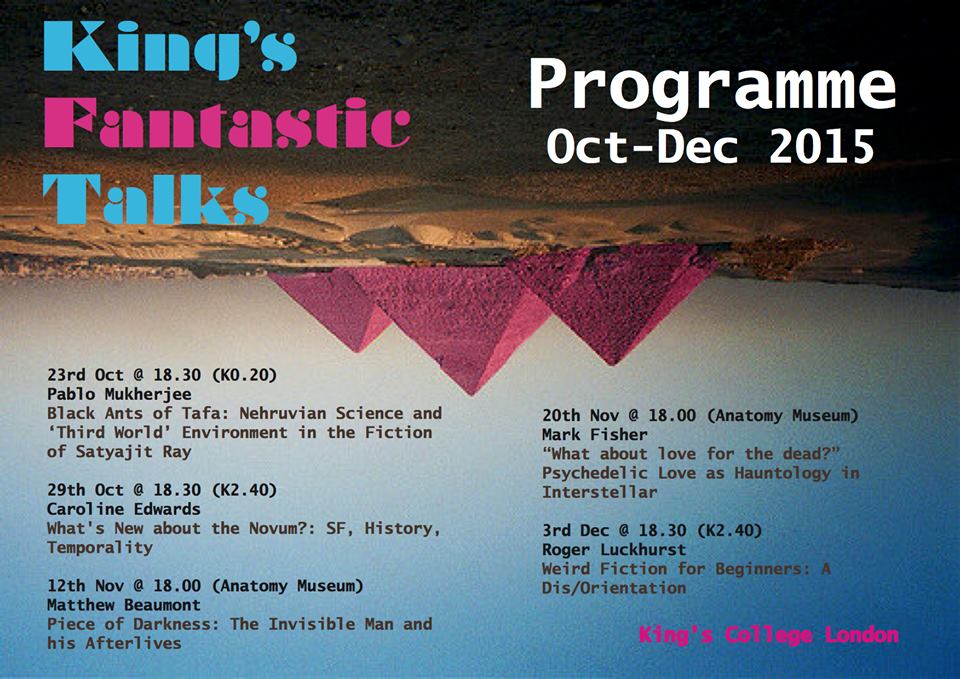
I've been invited this Autumn to deliver a lecture as part of a new series, "King's Fantastic Talks," organised by Dr Rhys Williams. My lecture will take place on 29th October at King's College London's campus and is titled "What's New About the Novum? SF, History, Temporality." The talk builds on my research into Ernst Bloch's utopian philosophy, looking in particular at the concept of the Novum (literally, the New) which he developed as part of his model of anticipatory consciousness (Vorschein). The Novum was extended by Darko Suvin in his influential formalist study of science fiction, Metamorphoses of Science Fiction: On the Poetics and History of a Literary Genre (1979), where Suvin borrowed Bloch's notion of multi-stranded temporal complexity in his examination of the structural ingreidents of science fiction as a genre. However, Suvin elided the explicitly Messianic framework in which Bloch's Novum is grounded – derived from the Jewish tradition of redeeming the past, which is informed by complex messianic futurities germinative within the present time.
I will consider the temporal implications of the Blochian Novum (as well as its similarities with Suvin's later reading) and what this means for our understanding of how the Novum functions in science fiction texts. Whether expressed by a new situation or secondary world, or a de-alienating socio-political perspective in which more egalitarian relations are articulated in a futuristic or fantastical landscape, the Novum should be understood as more than simply "new" narrative actants and settings. Rather, I shall argue, we need to pay attention to the layered temporal possibilities suggested in the structure of the Novum itself: at once anticipatory, utopian, reemptive, messianic, political and subjective.
